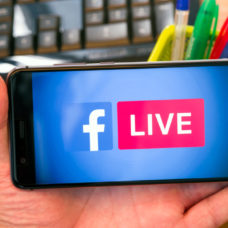How many hours a day would you say you spend looking at a screen?
You use your desktop computer at work, your laptop computer at home, and your phone every day and everywhere. For most of us, the answer to the above question is easily in the double digits.
Is this normal technological dependency or technological addiction?
Are You Already a Tech Addict?Click To Tweet
How Does Tech Addiction Happen?
There are many rehabilitation programs for addicts such as alcoholics, excessive gamblers, and drug addicts. But what about people addicted to technology?
The 24/7 World of Warcraft players, the workaholic with 3 smartphones, the Netflix binger. Tech addiction comes in just as many varieties as tech itself. While some address the issue light-heartedly in Amazon listicles, others raise greater concerns over the extent of technology addiction.

There is no rubric for detecting video game addiction, but rules of addiction still apply. The fundamentals follow four archetypes:
- The disease model
- Self-medication hypothesis
- Hijacker of the “rewards” center of the brain
- Biopsychosocial phenomenon
As with gambling, you have a physical and psychological reinforcement at play.
If you win, you get a rush of endorphins and can attain validation in a variety of ways. If you lose, not only do you incur a monetary loss, you may associate this with feelings of inadequacy and negativity.
Similarly, drug addiction operates on these factors, as well. A biological response reinforces a psychological association. So what does this have to do with looking at cute puppy videos on Instagram or scrolling Twitter for hours?
The Spectre of Technology Addiction

The reason why technology addiction is potentially limitless is due to technology’s proliferation and integration.
How many apps do you access on a daily basis? Facebook, Gmail, Outlook, Twitter, Reddit, Instagram, Skype, your bank, Paypal; the list is endless.
Facebook doesn’t have the click money to pay and receive cool stuff function of Amazon.
It also lacks the blu-ray capabilities and Destiny 2 functions of a Playstation 4.
Yet, Facebook combines interaction with technology that promotes communication, but could soon detach you from the real world.
The lines of real and virtual or cyber begin to blur. Data suggests that this can feed negative traits or feelings such as procrastination, impatience, loneliness, and more.
Theoretically, as mentioned, the depths of tech addiction are boundless due to its integration. Our cars have computers in them and so do some watches. Some menus at restaurants are interactive screens and even gas station kiosks have video ads. The electronic “hum” is ever present, though not always in an adverse capacity. How can we balance tech use to combat technology addictions?
Coming to Terms with Technology
If you’re worried you are addicted to tech, there are simple ways to begin detecting any issues and work toward progress.
Increasingly, moves toward “mindfulness” have become popular to remain in the present. Good ways to combat tech addiction include scheduled breaks, journaling, and not making yourself available 24/7. You can even use apps to alert you when to take a break from using technology.
Of course, one of the biggest challenges tech fans can face is disconnecting themselves from all tech and internet sources.
As always here at Edgy Labs, we want you to be aware of all things on the cutting edge of technology, including the things you should avoid.
What would you do if you had to “unplug” for 24 hours?
Disclaimer: This article should not be misconstrued as medical diagnosis or treatment advice for any physical or psychological condition. As always, if you are worried about your mental or physical health, please consult your physician.



















There are mixed views that says technology is doing no good but then I think without technology life will total stop. But we need to learn how to manage technology well. Very informative article.